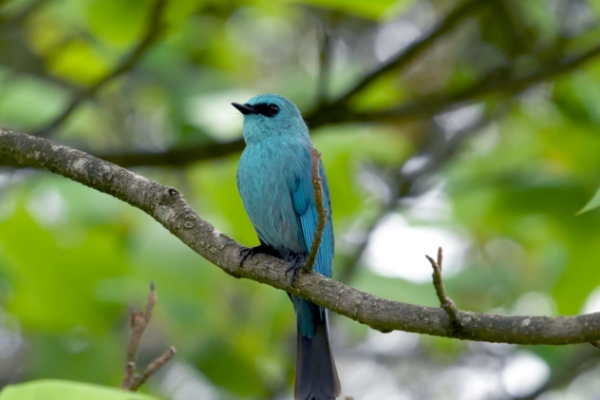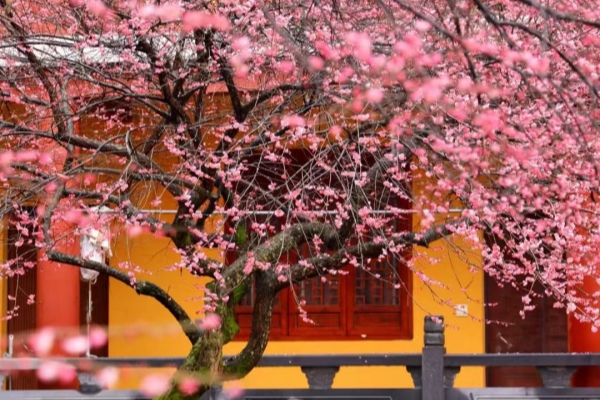Hanfu: A family affair
Ye Hongyao has always loved classical Hanfu clothing. She even wore Hanfu in middle school – the only student to do so. "A lot of people thought I was weird," she says. "But now, if you dress like this, no one thinks you're weird anymore."
Ye Hongyao is part of a growing community of lovers of Hanfu – the traditional clothing of China's majority Han ethnic group. Led by the country's fashion-conscious youth, the movement has gained considerable momentum in the past couple of years. According to a recent report from iiMedia research group, the number of Hanfu aficionados has almost doubled, from 3.56 million in 2019 to over six million in 2020.
Part of this growth can be ascribed to parents wanting their children to learn about traditional clothing styles, and the ways of life they're associated with.
"I grew up loving traditional costumes," says Ye Hongyao. "My daughter, under my influence, also likes to wear Hanfu and listen to ancient music. We like to dance in the classic style, too. She enjoys it because, when she puts on Hanfu, she feels like she's a little princess from a TV drama."
Costume dramas such as The Empress of China and Secrets of the Three Kingdoms, in taking the nation by storm, have brought traditional culture into the spotlight. The online publicity has seen everyone, from influencers to TV show hosts, donning Hanfu, which encourages more young people to buy into the trend.
Similar to the influence costume drama Bridgerton has had on the UK high street, these popular dramas have steered fashion in a new direction among the 80s and 90s generation. They, in turn, have passed the style on to their children, culminating in a boom in Hanfu events for kids.
"There are a growing number of Hanfu beauty pageants," says Ye Hongyao. She sees such events as an opportunity to bond with her daughter, Chaying. "Because I like Hanfu, I'll make time to accompany her whenever there is a Hanfu show."
Now three, Chaying recently won a "child star" award in a Hanfu photography competition organized by a TV station in the Guyan Painting Village near Lishui in Zhejiang Province.
Ye Hongyao believes that aside from being a fun activity, Hanfu events encourage her daughter to take pride in her national culture. "Hanfu is not only role play, but also a reflection of the gradual revival of Han culture," she says. "Showing children this type of traditional Chinese culture can educate them from an early age, show more Chinese people the importance of Hanfu, and also promote etiquette."
Hanfu is now more accessible and affordable than ever before. A growing number of online Hanfu stores have sprung up on Taobao, and there are hundreds of bricks-and-mortar Hanfu "experience centers" across the country where people can dress up, take photographs, and learn about costumes from different dynasties.
With the pandemic having eased in China, Ye Hongyao has big plans for 2021. "This year, I plan to take my daughter to participate in the Xitang Hanfu Culture Week, the Hengdian Hanfu Festival and the Chinese Clothing Festival, as well as the Guqin Music Festival organized by our local Hanfu center," she says.
And although Ye Hongyao admits that
Chaying's classmates aren't such great fans of Hanfu, she believes that
will change with time. "It'll become more commonplace," she says.
"Perhaps in the future, Hanfu may be worn, for example, as elementary
school uniforms."

 Lishui establishes intelligent biodiversity monitoring system
Lishui establishes intelligent biodiversity monitoring system New fungus species discovered in Qingyuan
New fungus species discovered in Qingyuan Lishui transforms weirs to aid fish migration
Lishui transforms weirs to aid fish migration